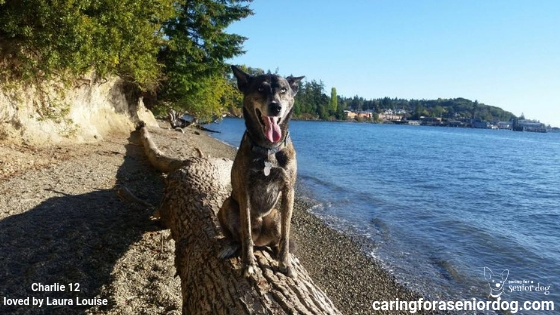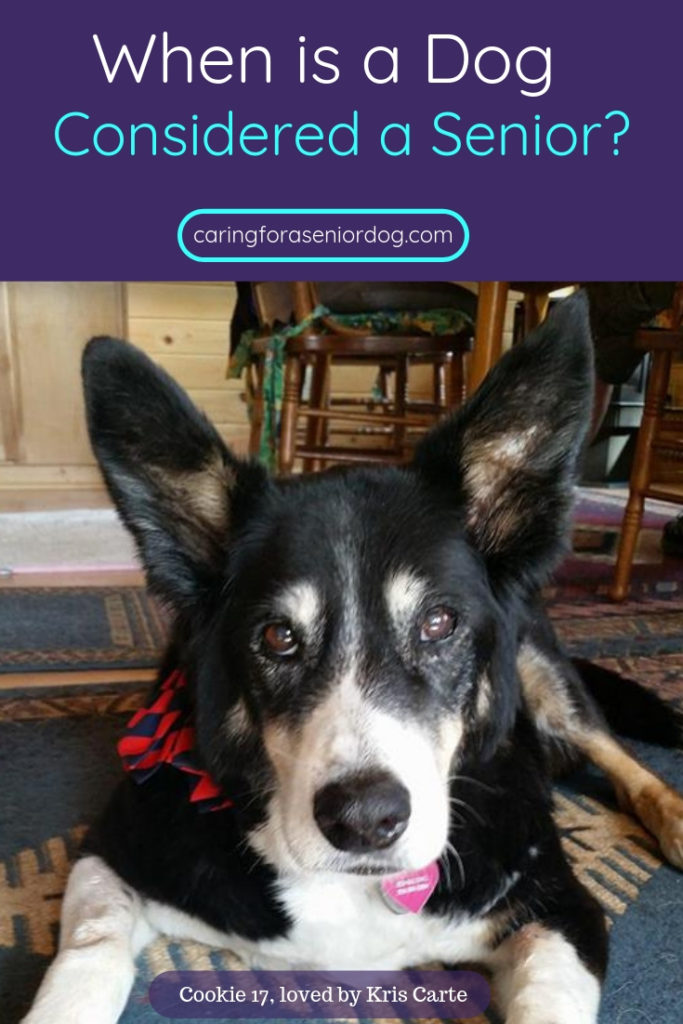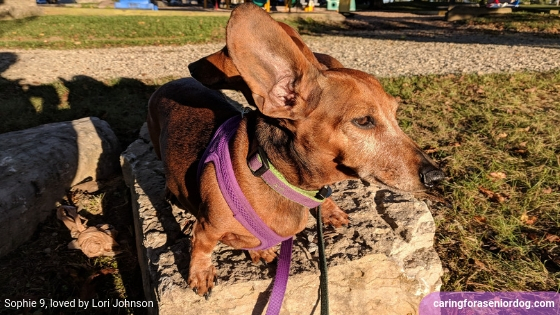
When is a dog considered a senior? Is it determined by the flip of a page on a calendar? One day your dog is an adult the next he’s old!
Is it when you start to see grey hairs around the muzzle?
Would it happen after a diagnosis of an illness typically associated with an old dog?
How about by the condition of the teeth?
When you see cataracts in your dog’s eyes?
We all age gradually
Aging is a process, so it is impossible to say at exactly what moment any living being is considered old.

Senior does not mean almost dead
I hate to be so blunt about the wording, but I do feel when we hear the words “old” or “senior” dog there is an immediate picture of them lying around on a bed all day, suffering from numerous diseases, shuffling along barely able to walk.
Surely you know how many pups considered old because of a number act younger than many dogs half their age, and are in as good condition!!
The smaller they are, the older they are when called “senior”
Generally speaking the smaller the breed the longer they tend to live, so the older the age they are when called “senior.”
I found this chart on a website called vetwest.com.au
Tiny (<10kg) dogs are considered seniors once over the age of 8
Small (10-25kg) dogs are considered seniors once over the age of 7
Medium (25-40kg) dogs are considered seniors once over the age of 6
Large (>40kg) dogs are considered seniors once over the age of 5
I think this is as good a guide as any to help us figure out where our dogs fit in.
Signs of aging in dogs
Some of the signs you may see include –
- Greying around the muzzle
- Mobility issues
- Peeing more
- Drinking more
- Sleeping more
- Lower energy levels
- Not as interested in playing
- Changes in appetite
- Confusion
- Startled when you approach
- Anxious
- Bumping into things
- Bad breath
- Cloudy eyes
- Lumps and bumps
- Weight gain
- Weight loss
If you do notice any changes in your dog’s behaviour, even if you feel they’re minor, don’t assume they are part of the natural aging process and ignore them. Often these changes are a sign of something deeper going on, so a trip to the vet sooner rather than later is advised. It’s better to hear your vet say everything is fine, then wait too long and hear there’s nothing to be done.

How to take great care of your older dog
Yes there are illnesses and issues more common to older dogs than younger ones, but that doesn’t mean your dog won’t be healthy and active for years to come.
There are plenty of things you can do, starting right now, that will be hugely beneficial to your pup and they include –
- Feeding him a good quality diet
- Taking him for twice yearly check ups even if you don’t notice anything obviously wrong
- Walking your dog within his abilities
- Playing games with him and challenging him with puzzle toys for mental stimulation
- Joint supplements and probiotics are just a couple of additives you may want to discuss with your vet
- Joint my FB group Senior Dog Care Club for a ton of support, advice and great tips
Is age really just a number?
While it’s true aging does tend to bring with it a greater risk of illness and disease, putting that “old” label on our dogs doesn’t always do them any favours. Too many pet parents wrap them in cotton (not literally!) and believe they are happiest sleeping all day. The sad truth is it’s more than likely they are sleeping all day because no one is taking them out for their much needed walks.
Help your dog get the most out of every day by keeping him or her active (within their abilities), giving him extra love and attention, feeding him a good quality diet and enjoying your bond every day.
After all, you’re blessed to be sharing your life with a senior dog and caring for one is absolutely good for the soul.

Leave a Reply